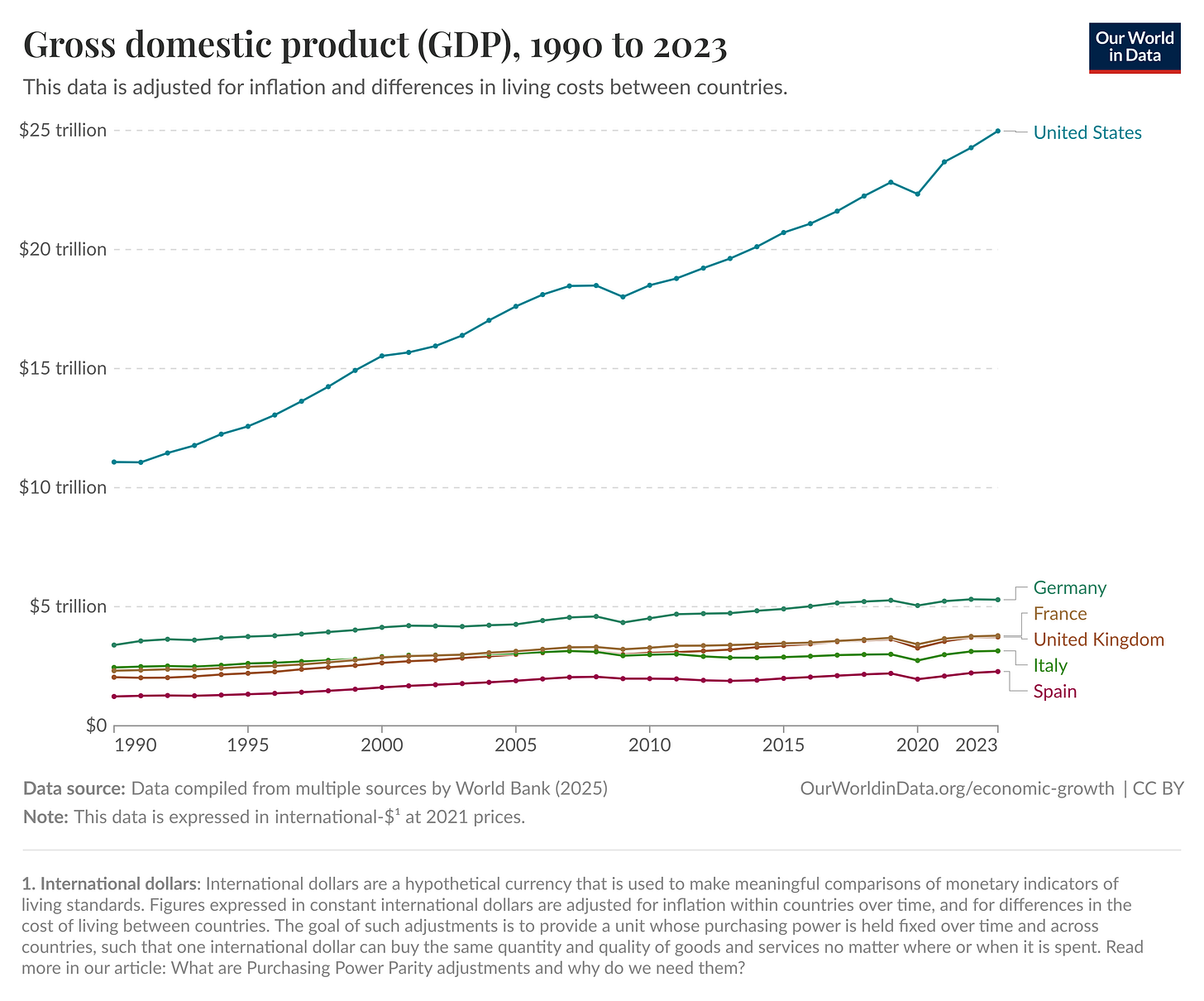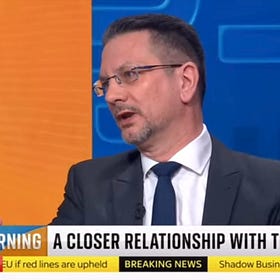Labour's latest magic trick
I was asked onto TalkRADIO to discuss Labour's "betrayal of Brexit": youth mobility. That's not the sell out: the real issue is aligning to EU law and economic stagnation.
When I was asked to go on TalkRADIO this morning with Mike Graham to discuss “Youth mobility is free movement and a betrayal of Brexit”, I smelled a rat: why are we talking about this topic in these terms as the EU Commission President heads to London?
Yes, that’s right: Labour have pulled off a magic trick, distracting the press and media while selling out the country in another direction.
The UK already has a youth mobility scheme and no one cares much about it:
You can apply for a Youth Mobility Scheme visa if you:
want to live and work in the UK for up to 2 years
are aged 18 to 30 or 18 to 35, depending on where you’re from
have £2,530 in savings
have certain types of British Nationality or are from certain countries or territories listed in the eligibility requirements
People are eligible from Australia, Canada, New Zealand, South Korea, Iceland, Japan, Uruguay and some other territories. It does not much matter if young people from EU countries can also come for a time-limited period in capped numbers.
EU “free movement” means the right of citizens of the European Union to move, reside, and work freely across the member states of the EU, with no cap on numbers and no time limit. It means equal treatment with nationals in terms of employment, working conditions and access to social benefits, subject to some limitations. This principle is one of the four fundamental freedoms of the EU’s internal market, alongside the free movement of goods, services and capital.
A youth mobility scheme is not “free movement” in the EU’s terms and would not be “a betrayal of Brexit”. It would not really matter and would probably be a good thing. But that is not the point. Why this, now? And how?
While the Chancellor just headed to the USA for a trade agreement – one which would surely require us to drop non-tariff barriers to US goods which we inherited from the EU – we also find the UK Government considering aligning us to EU law. The two paths are not compatible: we can either use the EU’s goods regulations or have a free trade agreement with the USA. We can’t do both and we ought not to.
As I set out in a previous article, according to The Growth Commission:
That US trade deal could be worth +7.9% of GDP whereas aligning with the EU and facing US tariffs could cost -6.725% to -9.35% of GDP: a trade deal with the USA should be a no-brainer.
It is true that if we aligned the whole UK to EU law to the same, limited extent as Northern Ireland, it would ease the issues for that important part of our country. Some unionists would be happy with that. Unfortunately, such unionists and the government would have sold out the entire nation.
The EU’s history is one of stagnation. Via Our World in Data, here are some illustrative figures for EU countries and the USA for comparison1:
The reason for this stagnation is the EU law to which the Government wishes to align. Given the liabilities which the British state now has, we can go for growth or default on pensions, healthcare, social care and more over the 10-20 years ahead.
I would prefer to avoid all that suffering. That means we must regulate differently and not follow EU law.
Return to Growth
Over the past week, I was glad to appear on Sunday Morning with Trevor Phillips and again on GB News. The relevant clips are above. I talked about the spending challenge we face and promoted Lord Jon Moynihan’s excellent new book,
Enter 62 useful Labour MPs in the Guardian: Labour MPs urge Starmer to back youth mobility scheme amid EU trade reset. I very much doubt this “pressure” on the PM emerged spontaneously. Much more likely, Number 10 and the Labour Whips will have put them up to use this old technique to set the agenda. Hey presto! The conversation in the media is about free movement, not a choice to ruin our country’s chances of avoiding a massive default on pensioners.
With Labour having so large a majority, there is not much we can do about it. You might at least write to your MP, letting them know they have been found out: writetothem.com
By all means roll your own!







Excellent point. I’ve long believed that the attraction of EU-level regulation is that it is kept distant from national Parliaments and so makes it easier for those setting and influencing the rules to avoid scrutiny and accountability. This is all more the case for a country outside the EU which doesn’t even have a formal ritualistic say.
Those who accuse the Government of a surrender to the EU are ignoring the fact that it’s the outcome they want. Rather it’s a betrayal of the national interest in the service of bureaucratic and producer interests.